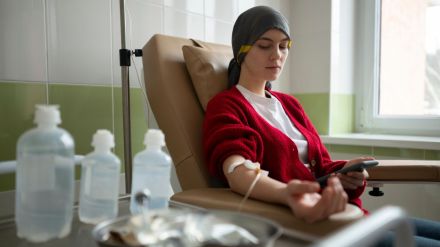Breast cancer remains the most common cancer among women worldwide. According to the World Health Organization (WHO), in 2024, around 2.4 million women were diagnosed with breast cancer globally, and approximately 685,000 women died from the disease. Despite advances in treatment, not all patients respond to chemotherapy, leaving doctors and patients searching for answers.
To understand why some women respond differently, we spoke to Dr. Mandeep Singh Malhotra, Director of Surgical Oncology at CK Birla Hospital, Delhi. “Chemotherapy works for many, but breast cancer is not one-size-fits-all. Several factors affect how well a patient responds,” he explains.
Tumour type matters
One of the main reasons is tumour heterogeneity. Most breast cancers are hormone-positive, which means they grow slowly. Chemotherapy targets rapidly dividing cells, so these slower-growing cancers often respond better to hormone therapy.
“Patients with hormone-positive tumours may not benefit as much from chemotherapy. Targeted hormone treatments are often more effective,” says Dr. Malhotra.
On the other hand, HER2-positive breast cancers are aggressive but respond better when chemotherapy is combined with Anti-HER2 targeted therapy. “In such cases, targeted drugs are crucial for improving outcomes,” he adds.
Genetics and drug resistance
Genetics also play a role. Mutations in genes like TP53 or a wild-type BRCA can affect how cancer cells repair DNA. Some cells can repair the damage caused by chemotherapy, making treatment less effective.
“Certain genes, such as MDR and MRP, help cancer cells push chemotherapy drugs out, which reduces their effect. In some cases, additional medicines or supplements can help overcome these pathways,” explains Dr. Malhotra.
Tumour microenvironment
The environment around the tumour also matters. Fibrosis (thickening of tissue) and low oxygen levels, known as hypoxia, can make chemotherapy less effective. “Chemotherapy relies on oxygen to create free radicals that kill cancer cells. Low oxygen levels limit this effect,” says Dr. Malhotra.
Patient-related factors
Patient-specific factors, including immune system strength and the presence of cancer stem cells, can also affect outcomes. Recurrent cancers often become resistant because they have been exposed to chemotherapy before.
“A strong immune system is vital for clearing dead tumor cells after chemotherapy. If these cells aren’t removed properly, it can lead to fibrosis and inflammation, making tumors harder to treat,” he explains.
Further, he said that variability in chemotherapy responses shows why personalised treatment plans are important. “By understanding tumour biology, genetics, and patient-specific factors, doctors can tailor therapies to achieve better results,” says Dr. Malhotra.
